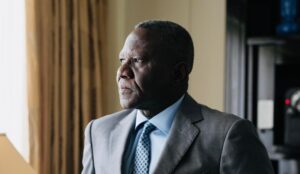
Source: Ghanaija
In the bustling city of Lagos, Nigeria, Dr. Adaeze was known for her dedication to improving healthcare. She was a respected figure at the General Hospital, where she worked tirelessly to ensure patients received the best care possible. However, Adaeze knew that delivering high-quality healthcare was not solely about hard work; it required the right tools and technologies.
One day, Adaeze attended a medical conference in Accra, Ghana. There, she met Dr. Kofi, an expert in Health Technology Assessment (HTA). HTA is a process that evaluates the social, economic, organizational, and ethical issues of a health intervention or health technology. Kofi’s presentation highlighted the crucial role HTA plays in making informed decisions about which medical technologies and treatments should be adopted.
Intrigued, Adaeze approached Kofi after his talk. “Dr. Kofi, your presentation was enlightening. How do you think HTA can improve healthcare in our regions?”
Kofi smiled, appreciating Adaeze’s interest. “Dr. Adaeze, HTA helps ensure that health technologies provide value for money. It considers the effectiveness, cost-effectiveness, and broader impact of technologies, ensuring that resources are used efficiently and patients receive the best possible care.”
Back in Lagos, Adaeze decided to introduce HTA at her hospital. She formed a team that included economists, ethicists, and healthcare professionals. Among them was Dr. Ibrahim, a talented economist from Kano, Nigeria. Ibrahim’s expertise in cost-effectiveness analysis was invaluable.
Their first project was to assess a new diagnostic tool for malaria, a common and deadly disease in the region. The tool, developed by a startup in Nairobi, Kenya, promised faster and more accurate diagnosis. However, it was also expensive. The team needed to determine if the benefits outweighed the costs.
The HTA team began by gathering data on the tool’s accuracy and speed compared to existing methods. They also looked at its cost, including the price of the equipment and training for healthcare workers. Additionally, they considered the potential impact on patient outcomes, such as reduced morbidity and mortality rates.
Adaeze and Ibrahim worked closely with local health workers, including Nurse Amina from Dar es Salaam, Tanzania, who had extensive experience with malaria patients. Amina provided insights into the practical challenges of implementing new technologies in resource-limited settings.
Through their analysis, the team found that the new diagnostic tool significantly reduced the time to diagnose malaria, allowing for quicker treatment. This, in turn, led to better patient outcomes and reduced transmission rates. While the initial cost was high, the long-term savings from improved health outcomes and reduced treatment costs made it a worthwhile investment.
The HTA report, presented to the hospital’s board, was thorough and compelling. The board approved the adoption of the new diagnostic tool, and soon it was being used across the hospital. Patients benefited from faster and more accurate diagnoses, and the overall burden of malaria began to decrease.
Encouraged by this success, Adaeze and her team continued to assess other health technologies. They evaluated everything from new surgical equipment to telemedicine platforms. Each assessment was meticulous, considering not only the clinical benefits but also the economic and social impacts.
One notable project involved a telemedicine platform designed to connect rural clinics in Uganda with specialists in urban centers. Dr. Otieno, a tech-savvy physician from Kampala, Uganda, was a strong advocate for the platform. He believed it could bridge the gap in specialist care for remote areas.
The HTA team, led by Ibrahim, conducted a comprehensive evaluation. They found that while the initial setup costs were significant, the platform would reduce travel costs for patients and allow for earlier and more accurate diagnoses. The improved access to specialist care would likely lead to better health outcomes and overall cost savings.
With the positive HTA report, the telemedicine platform was implemented in several rural clinics. Patients who once had to travel for hours to see a specialist could now receive expert consultations via video calls. The impact on patient care was profound, and the model was soon replicated in other regions.
As the years passed, Adaeze’s hospital became a leader in using HTA to guide its decisions. The approach ensured that each new technology or intervention adopted was backed by solid evidence, benefiting both patients and the healthcare system.
The success stories from Lagos inspired other African countries to adopt HTA practices. In Johannesburg, South Africa, Dr. Thandiwe led a similar initiative, focusing on evaluating new treatments for HIV/AIDS. In Addis Ababa, Ethiopia, Dr. Solomon used HTA to assess the value of a new vaccine for tuberculosis.
The collaborative efforts across the continent fostered a network of HTA professionals who shared knowledge and best practices. Conferences and workshops were held regularly, bringing together experts from different fields to discuss the latest advancements and challenges in health technology assessment.
Through these efforts, HTA became an integral part of healthcare decision-making in Africa. It ensured that limited resources were used wisely and that patients received treatments that were not only effective but also cost-effective. The approach led to improved health outcomes, greater patient satisfaction, and more sustainable healthcare systems.
Dr. Adaeze’s initial curiosity and dedication had sparked a movement that transformed healthcare across the continent. She often reflected on the journey and the remarkable progress made. The partnerships formed, the lives saved, and the overall improvement in healthcare delivery were testaments to the power of informed decision-making through health technology assessment.
As she looked out over the bustling city of Lagos, Adaeze knew that the work was far from over. New challenges and opportunities would always arise, but with the right tools and a commitment to evidence-based practice, the future of healthcare in Africa looked promising and bright.








